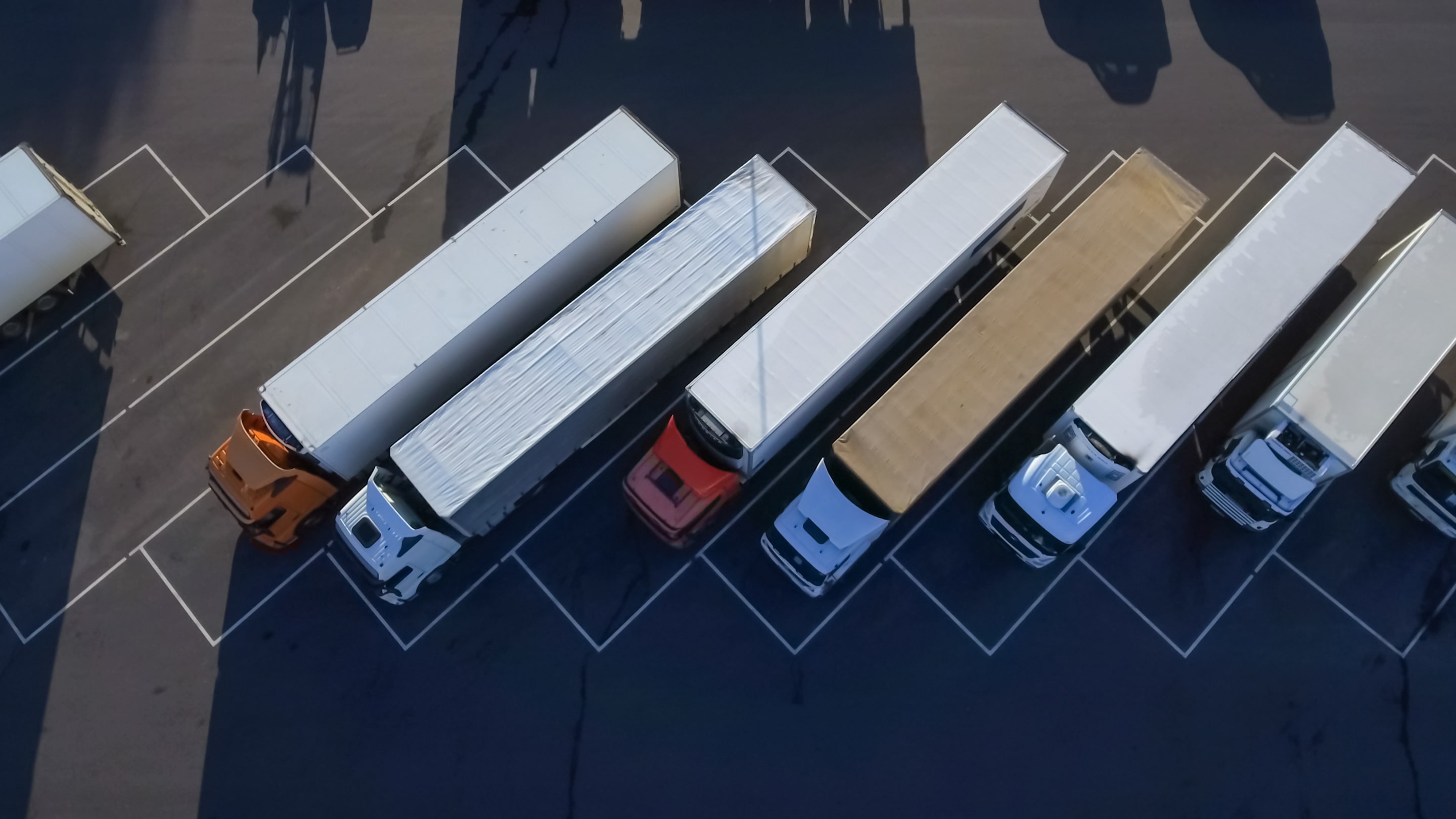
Guest
Riešenie nedostatku vodičov nákladných vozidiel v Spojenom kráľovstve v rokoch 2024/2025
Vytvorené: 16. 08. 2024
•
Aktualizované: 10. 10. 2024
Nedostatok vodičov nákladných vozidiel v Spojenom kráľovstve je komplexnou a mnohostrannou výzvou, ktorá má ďalekosiahle dôsledky pre národné hospodárstvo a dodávateľské reťazce. Spoločné úsilie vlády, priemyslu a zainteresovaných strán však začalo prinášať pozitívne výsledky, čo naznačuje, že sa situácia môže zmeniť.
Pri pohľade na roky 2024 a 2025 bude pre zabezpečenie dlhodobej odolnosti a prosperity odvetvia dopravy rozhodujúce, aby sa naďalej riešil nedostatok vodičov a aby sa pozornosť sústredila na prilákanie a udržanie talentovaných ľudí.
Hĺbka krízy
Nedostatok vodičov nákladných vozidiel v Spojenom kráľovstve je čoraz väčším problémom, pričom situácia dosiahne kritický bod v roku 2021. Podľa správ z odvetvia čelila krajina na vrchole krízy nedostatku približne 100 000 vodičov nákladných vozidiel. Toto číslo predstavovalo výrazný nárast oproti 59 000 vodičov, ktorých nedostatok bol zaznamenaný v roku 2019, čo podčiarkuje rýchle zhoršovanie situácie.
K tomuto nedostatku prispelo viacero faktorov vrátane vplyvu pandémie COVID-19, následkov brexitu a zmien daňových pravidiel IR35, ktoré sa dotkli vodičov nákladných vozidiel zamestnaných agentúrami na zmluvnom základe. Tieto narušenia viedli k odchodu mnohých skúsených vodičov z odvetvia, pričom na trh neprichádzal dostatok nových talentov, aby zaplnili prázdne miesto.

Vládne zásahy a úsilie odvetvia
Vláda Spojeného kráľovstva a zainteresované strany z odvetvia si uvedomujú vážnosť situácie a podnikli rozhodné kroky na riešenie nedostatku vodičov nákladných vozidiel. Ministerstvo dopravy zaznamenalo pozoruhodné zlepšenie, pričom percento voľných pracovných miest pre vodičov nákladných vozidiel nahlásených podnikmi v nákladnej doprave kleslo zo 43 % v 4. štvrťroku 2021 na 23 % v 3. štvrťroku 2023.
Jedným z kľúčových opatrení, ktoré sa zaviedli, bolo zvýšenie finančných prostriedkov na získavanie a školenie nových vodičov nákladných vozidiel. Vláda tiež urýchlila proces získavania vodičských preukazov pre vodičov nákladných vozidiel a investovala 8 miliónov GBP do zlepšenia kvality odpočívadiel pre vodičov nákladných vozidiel, čím sa vyriešil dlhodobý problém zlých pracovných podmienok pre vodičov.
SNAP pomohla viacerým britským parkoviskám pre nákladné vozidlá vypracovať žiadosti o vládne financovanie na zlepšenie ich zariadení. Viac informácií o parkoviskách pre nákladné vozidlá zaradených do siete SNAP.
Riešenie problému starnutia pracovnej sily a získavanie mladších talentov
Jedným z pretrvávajúcich problémov v odvetví vodičov nákladných vozidiel je starnutie pracovnej sily, pričom priemerný vek vodičov je 48 rokov. Odvetvie má problém prilákať mladšie talenty, pretože vnímanie zlých pracovných podmienok, priemerných miezd a neinšpiratívnej kariéry mnohých odrádza od uvažovania o kariére vodiča nákladného vozidla.
Vláda nedávno začala konzultácie o znížení minimálneho veku vodičov autobusov a autokarov, čím by sa mladým ľuďom mohlo otvoriť viac príležitostí na vstup do odvetvia dopravy. Tento krok spolu s úsilím o zlepšenie vybavenia vodičov a pracovných podmienok by mohol pomôcť zatraktívniť toto odvetvie pre novú generáciu pracovníkov.
Pozrite si mapu parkovísk pre nákladné vozidlá, umývacích staníc pre nákladné vozidlá a ubytovacích zariadení v rôznych regiónoch siete SNAP.

Prekonávanie regulačných prekážok a zavádzanie flexibility
Ďalším faktorom, ktorý prispieva k nedostatku vodičov nákladných vozidiel, sú regulačné prekážky a byrokracia, ktorým musia noví vodiči čeliť pri vstupe do odvetvia. Proces získavania potrebných licencií a osvedčení môže byť časovo a finančne náročný, čo odrádza potenciálnych kandidátov.
Zainteresované strany z odvetvia sa v tejto súvislosti vyslovili za flexibilnejšie postupy odbornej prípravy a skúšok, podobne ako to robia autobusové spoločnosti. Zefektívnením procesu a jeho sprístupnením sa dúfa, že sa zvýši počet kvalifikovaných vodičov vstupujúcich na trh.
Vplyv brexitu a COVID-19
Nedostatok vodičov nákladných vozidiel v Spojenom kráľovstve sa ešte viac skomplikoval v dôsledku brexitu a porúch spôsobených pandémiou COVID-19. Strata vodičov z EÚ, ktorí predtým tvorili významnú časť pracovnej sily vodičov nákladných vozidiel v Spojenom kráľovstve, bola výraznou ranou.
Vplyv pandémie na školenia a testovanie navyše spôsobil, že na trh prichádza množstvo nových vodičov. Po oživení hospodárstva zvýšený dopyt po tovare a službách ešte viac zaťažil už aj tak vyťažený sektor dopravy.

Spolupráca a inovácie
Riešenie nedostatku vodičov nákladných vozidiel si bude vyžadovať spoločné úsilie vlády, zainteresovaných strán z odvetvia a vzdelávacích inštitúcií. Spoločnou prácou môžu vyvinúť komplexné riešenia, ktoré budú riešiť základné príčiny problému a vytvoria udržateľnejší a odolnejší dopravný systém.
Zásadnú úlohu pri zmierňovaní vplyvu nedostatku vodičov môže zohrávať aj zavádzanie inovatívnych prístupov, ako je napríklad využívanie technológií na optimalizáciu logistiky a zvýšenie efektívnosti vodičov. Investície do infraštruktúry, programov odbornej prípravy a iniciatív zameraných na vodičov môžu pomôcť vybudovať silnejšiu, rozmanitejšiu a odolnejšiu pracovnú silu.
Cesta vpred
Keďže Spojené kráľovstvo sa pohybuje v rozvíjajúcom sa prostredí nedostatku vodičov nákladných vozidiel, je jasné, že riešenie si bude vyžadovať mnohostranný prístup. Pre zabezpečenie odolnosti národnej dopravnej siete bude nevyhnutná pokračujúca podpora vlády, spolupráca v odvetví a záväzok prilákať a udržať si talentovaných vodičov.
Aj keď sa kríza v najbližšej budúcnosti možno úplne nevyrieši, doteraz prijaté kroky dávajú nádej. Ak sa Spojené kráľovstvo bude naďalej zameriavať na inovácie, flexibilitu a inkluzívnosť, môže sa dopracovať k budúcnosti, v ktorej bude dopravný sektor vybavený tak, aby spĺňal rastúce požiadavky hospodárstva a potreby svojich občanov.


